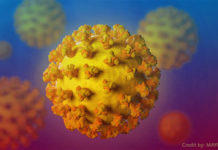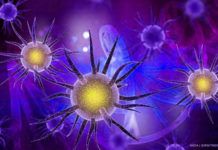What is it’s about?
Coronaviruses are a family of viruses that can cause illnesses such as the common cold, severe acute respiratory syndrome (SARS) and Middle East respiratory syndrome (MERS). A new virus called the 2019 novel coronavirus (2019-nCoV) has been identified as the cause of a disease outbreak that began in China. The disease is called COVID-19.
Where the Name is Derived from?
Coronaviruses were given their name based on the crown-like projections on their surfaces. “Corona” in Latin means “halo” or “crown.”
What is the History about this virus and it’s types?
Since the SARS outbreak 18 years ago, a large number of severe acute respiratory syndrome-related coronaviruses (SARSr-CoV) have been discovered in their natural reservoir host, bats1–4. Previous studies indicated that some of those bat SARSr-CoVs have the potential to infect humans5–7.
Here we report the identification and characterization of a novel coronavirus (2019-nCoV) which caused an epidemic of acute respiratory syndrome in humans in Wuhan, China. The epidemic, which started from 12 December 2019, has caused 2,050 laboratory-confirmed infections with 56 fatal cases by 26 January 2020. Full-length genome sequences were obtained from five patients at the early stage of the outbreak.
They are almost identical to each other and share 79.5% sequence identify to SARS-CoV. Furthermore, it was found that 2019-nCoV is 96% identical at the whole-genome level to a bat coronavirus. The pairwise protein sequence analysis of seven conserved non-structural proteins show that this virus belongs to the species of SARSr-CoV. The 2019-nCoV virus was then isolated from the bronchoalveolar lavage fluid of a critically ill patient, which can be neutralized by sera from several patients. Importantly, we have confirmed that this novel CoV uses the same cell entry receptor, ACE2, as SARS-CoV.
Human Coronavirus Types
Coronaviruses are named for the crown-like spikes on their surface. There are four main sub-groupings of coronaviruses, known as alpha, beta, gamma, and delta.Human coronaviruses were first identified in the mid-1960s. The seven coronaviruses that can infect people are:
Common human coronaviruses
- 229E (alpha coronavirus)
- NL63 (alpha coronavirus)
- OC43 (beta coronavirus)
- HKU1 (beta coronavirus)
Other human coronaviruses
- MERS-CoV (the beta coronavirus that causes Middle East Respiratory Syndrome, or MERS)
- SARS-CoV (the beta coronavirus that causes severe acute respiratory syndrome, or SARS) 2019 Novel Coronavirus (2019-nCoV).
People around the world commonly get infected with human coronaviruses 229E, NL63, OC43, and HKU1.Sometimes coronaviruses that infect animals can evolve and make people sick and become a new human coronavirus. Three recent examples of this are 2019-nCoV, SARS-CoV, and MERS-CoV.
Controversies & Facts Around
- China wants to declare a bio war against India on the name of Corona but it has misfired
- Virus has been born due to food combination of Snake & Bats in Wuhan Market of China, where one will find the weird food habits in the world.
- China pleas its high court to kill 20K people who already effected with Corona Virus but court had rejected.
Symptoms
Signs and symptoms of infection with the new coronavirus may appear two to 14 days after exposure and can include:
- Fever
- Cough
- Shortness of breath or difficulty breathing
The severity of the new coronavirus symptoms can range from very mild to severe, even death. Although understanding of this disease continues to grow, most people with severe illness have been of an older age or had other significant existing medical conditions. This is similar to what is seen in people who have severe infections with other respiratory illnesses, such as influenza.
Is there any Medication for CORONA?
***There is currently no vaccine to protect against 2019-nCoV. The best way to prevent infection is to avoid being exposed to this virus. There is no specific antiviral treatment for 2019-nCoV. People with 2019-nCov can seek medical care to help relieve symptoms***







































